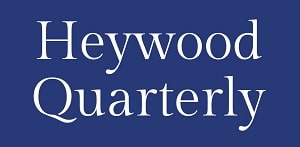Since the Heywood Quarterly launched in June 2024, the pace of political change across the western world has been frenetic. This year has been the largest democratic exercise in world history, with four billion citizens making their voices heard. Voters in both the United Kingdom and the United States have chosen new governments, and at the time of writing fresh elections have been called unexpectedly in Germany and the Republic of Ireland. In addition, the new year will see the four-yearly changing of the guard at the European Commission in Brussels. Amidst such political turmoil, civil servants must both adapt to new realities and hold fast to the principles which routinely underpin their work: thoughtful analysis, impartial advice to Ministers, effective implementation of policies and service to the people.
Issue One of this publication was shaped by those twin imperatives, highlighting (among other things) the challenges of a government transition, the evergreen qualities that make a good public servant, and the importance of exploring and embracing new ideas. Issue Two continues that forward-looking approach and includes, I believe, a number of contributions that will help stimulate new thinking in Whitehall and elsewhere in the public sector in the months and years to come. Talking of the years to come, though, how far do any of us really spend time in our jobs thinking properly about the future? Politicians and academics have long blamed business people and investors for short-termism, but it seems policymakers and even those responsible for the delivery of policy are guilty too. As James Ancell, Head of Futures and Foresight, Joint Data and Analysis Centre, points out (pp 24-29), the air this year has been thick with the conclusions of public committees and inquiries calling on everyone to adopt a longer-term view – but it seems that the urgent, the critical, and the preoccupation with the here and now continue to crowd out what are arguably more important considerations. James argues that the time is right for a shift of mindset and offers some useful practical tips to help civil servants develop the ‘foresight’ to look ahead.
Backward reflection, meanwhile, can be just as salutary, and there are few retired ‘mandarins’ as well respected, and as eagerly listened to, as Lord Burns. I was present with Peter McDonald earlier in the autumn when Peter and Terry looked back on the former Permanent Secretary to the Treasury’s near fifty years of public service (including his many appointments as the chair of external reviews). In the summary of this conversation (pp 17-23), note, in particular, Terry’s view on innovation in the Civil Service: ‘it is not just about inventing new ideas, it is just as much about how you use the ideas that other people have developed’. Terry also has perceptive things to say about reacting to crises, working with Ministers, encouraging specialists and the dangers of looking for preconceived answers.
Combined with the broad themes of looking forward and looking back, this edition of the Heywood Quarterly also focuses on three more specific issues: English devolution, mutualisation and the value of financial watchdogs in the shape of the UK’s Office for Budget Responsibility (OBR). John Wrathmell’s insightful piece on the experience of the Greater Manchester Combined Authority (pp 10-16) continues the Heywood Quarterly’s interest in the wider devolution debate. With the help of his ringside seat as the officer responsible for GMCA’s economic and business policy in recent years, John sets out clearly how regional powers and structures in this part of England have evolved. It’s essential reading for anyone engaging with, devolved institutions in GM or elsewhere, as well as a primer for those in other regions likely to benefit from the new Government’s commitment to decentralisation.
There’s no doubt, too, that politicians and policymakers have once again been eyeing up the attractions of ‘mutualisation’, both as an ownership model and as a means of improving our public services through greater customer and other stakeholder representation. Who better, therefore, to explain the renewed momentum for this idea than Sharon White, the businesswoman and former senior civil servant who in September stepped down as chairman of the employee-owned John Lewis Partnership. Sharon brings her first-hand experience to bear in promoting the advantages of this
form of organisation (pp 5-9).
As chairman of the OBR for its first ten years, Robert Chote is also uniquely well placed to describe the birth pangs of that important, and increasingly influential, independent fiscal institution (IFI). In his article “Has the OBR experiment been worthwhile?” (pp 30-35), Robert tackles head on the long-running debates over the watchdog’s transparency and independence, affirming that its scrutiny of the fiscal finances is alone well worth the candle.
In this edition you’ll also find two book reviews – one, by Donald Marshall, about the risks for civil servants of making policies where accountability is unclear (pp 38-40), the other by former special adviser Peter Cardwell on Tales of the Unelected, Dan Corry’s fictionalised short stories about SpAds (pp 36-37). Both are crisp and entertaining commentaries on compelling topics. Finally, thank you to all those who have got in touch with their enthusiastic reactions to the first issue and to the early articles, with their ideas for the development of this publication, and above all with their offers to contribute. Please keep the suggestions coming. As you’ll see in the back of this edition (comments and feedback section), you don’t have to write a full article – short ripostes to authors with a contrary viewpoint or additional reflections (as with Jonathan Menary’s interesting discussion of gene editing) are just as welcome.
Tim Dickson, Editor in Chief.





